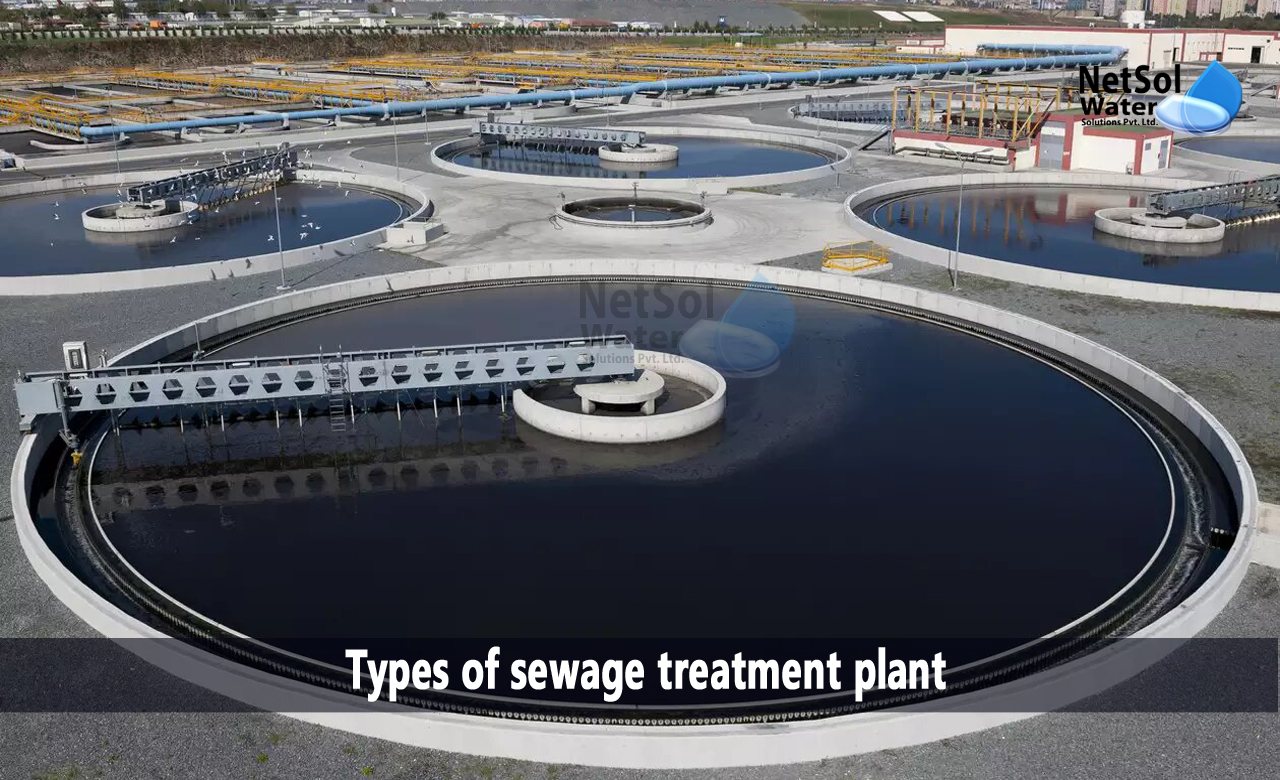Wastewater and sewage are processed and treated at sewage treatment plants to create a cleaner "effluent" that can be recycled back into the environment safely. They aid in groundwater balance restoration, preventative health care, and curbing environmental deterioration and pollution.
In housing societies, treated water can be utilized for non-potable tasks like irrigation, vehicle washing, gardening, and flushing the bathroom.
Water that is cleaner would reduce the number of people who die from water-borne illnesses, have less of an adverse effect on the environment, and, from a much more focused perspective, no house would have to pay for water tankers as there would be a surplus of ground water on large scales and reusable water at community levels.
How many Types of sewage treatment plant?
Sewage treatment plants are available in a variety of shapes and sizes, each with a unique method for handling wastewater. They are usually categorized into the following categories:
1. Activated sludge process (ASP):
Activated sludge process is one of among the most widely used techniques for treating waste. This approach is used in larger industrial wastewater treatment plants in addition to domestic systems. These systems are composed of a biozone chamber and a settlement chamber as their primary components.
The "biozone" is where the waste from a property goes after it reaches the tank. An air diffuser in this area gives the bacteria in it oxygen, which keeps them living. The sludge inside the system are broken down by the microbes that reside in the "biozone."
These systems are an affordable alternative because they don't contain any mechanical or electrical components inside the tank, making maintenance simpler. Due to the air diffuser operating the majority of the time, these systems' electric consumption may be greater than that of other systems on the market. Due to the need for larger tanks, which necessitates a larger excavation, these systems can also be more expensive to install than other systems.
Here are a few examples of ASP sewage treatment plant:
· Vortex
· Crystal Eco
· WPL Diamond
· BioPure
· Conder ASP
· Bison
· Biodigester
2. Rotating biological contactor:
A rotating biological contactor or RBC is a biological fixed-film treatment process employed in the secondary treatment of wastewater following primary treatment. The main treatment procedure entails filtering out coarse suspended material, such as grit and sand, and then settling the suspended solids. prior to the treated effluent is released into the environment, typically a body of water, the RBC process enables the wastewater to come into contact with a biological film to remove contaminants in the wastewater. (river, lake or ocean). A form of secondary (biological) therapy is a rotating biological contactor. It comprises of a set of parallel discs that are closely spaced and fixed on a rotating shaft that is supported just above the wastewater's surface.
RBCs, or rotating biological contactors, can endure increases in the organic load. Microorganisms must have access to both food and air in order to thrive. As the discs spin, oxygen is drawn from the atmosphere. As the microorganisms multiply, they accumulate on the media until shear forces from the spinning discs in the sewage cause them to be sloughed off. After the RBC, the effluent is transported by means of a clarifier, where the suspended biological particulates settle as sludge.
Examples of rotating disc system treatment plants include:
· Tuke and Bell
· Klargester Biodisc
· Clearwater Rotoclear
3. Sequencing batch reactors:
Sequencing batch reactors, also referred to as fill and draw systems, use a series of stages to process wastewater. The same tank reactor serves as the setting for each stage. These systems, which are incredibly adaptable, can handle a variety of wastewater types, from weak to powerful.
Sequencing batch reactor examples include:
· Fluidyne
· Argos
· Lakeside
Do you need an advice or assistance on selecting the best water and waste water treatment unit? We have solutions for all your problems!
Let us now your problem, our experts will make sure that it goes away.
For an assistance or related query,
Call on +91-965-060-8473
Or write us at enquiry@netsolwater.com



